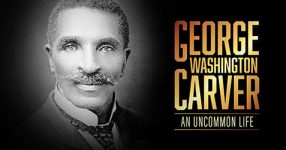The documentary “Chicago Stories: Ida B. Wells” begins with the lively backdrop of the 1893 World’s Fair in Chicago, showcasing the grandeur of the event that captivated the world. However, the focus shifts to Ida B. Wells, a 31-year-old African-American woman, who arrived with a mission to expose the fair’s omission of African-American stories, particularly the progress made post-slavery. Angry about the stereotypical representations, Wells challenged the exclusion of the achievements of black Americans, setting the stage for her role as an advocate for racial justice.
Wells strategically stood in front of the Haitian pavilion, distributing pamphlets to showcase the racial inequality. Her battles at the World’s Fair were just the beginning of her activism, revealing her determination to shed light on the struggles and triumphs of African-Americans during a pivotal time in history.
Early Life and Activism in the Face of Klan Violence
Delving into Ida B. Wells’s early life, the documentary explores her family’s experience with the Ku Klux Klan and her father’s defiance against voting on the Democratic ticket, which led to threats. Despite adversity, Wells became a teacher and a breadwinner, facing discrimination when forcibly removed from a train’s ladies’ car. This episode sets the stage for Wells’s resilience and determination, foreshadowing her later activism.
As Wells faced racial injustice, she honed her skills as a writer, finding a voice that resonated with her passion for justice. Her transition from teaching to journalism marked a turning point, as she discovered the power of her words to challenge societal norms. The documentary poignantly captures Wells’s early years, shaping her identity as a fearless advocate for change.
Southern Horrors and the Fight Against Lynching
The documentary shifts to Wells’s impactful journalistic career, focusing on her writings exposing the horrors of lynching. By reading excerpts from her internationally published works, “Southern Horrors” and “A Red Record,” the documentary highlights Wells’s unflinching condemnation of racial violence. Wells’s call for African-Americans to arm themselves with Winchester rifles becomes a powerful statement against the failures of the legal system to protect them.
As Wells’s influence grew, she faced personal challenges, including the lynching of her friend Thomas Moss. The documentary skillfully portrays Wells’s evolution into a prominent anti-lynching activist, emphasizing her significant role in shifting the narrative around racial violence.
Chicago Years and Advocacy for Suffrage
Transitioning to Wells’s life in Chicago, the documentary explores her role as a radical black leader and her marriage to Ferdinand Barnett. The couple’s dynamic partnership is highlighted, showcasing how Wells’s journalistic endeavors and Barnett’s political support made them a formidable force. The birth of their first child, Charles, symbolizes the intertwining of their personal and activist lives.
As the documentary unfolds, Wells’s activism expands to suffrage, emphasizing her commitment to race-centric advocacy. The establishment of the Alpha Suffrage Club and her slogan, “race interest first, last, and all the time,” underscores Wells’s dedication to empowering black women politically. Her efforts to elect Chicago’s first black alderman illustrate the tangible impact of her suffrage work.
Legacy and Lasting Impact
The final segment of the documentary reflects on Ida B. Wells’s enduring legacy. Despite facing financial struggles and closing the Negro Fellowship League, Wells’s impact continued to resonate. The documentary acknowledges the disconnect between the recognition of her name and the awareness of her contributions, culminating in the posthumous honors she received.
Closing with Wells’s words on eternal vigilance being the price of liberty, the documentary “Chicago Stories: Ida B. Wells” emphasizes her unique and outstanding contributions. Wells’s story serves as an inspiring example of using talent and determination to create meaningful change, leaving a lasting imprint on the fight for justice and equality. The recognition of Ida B. Wells Drive and her posthumous Pulitzer Prize underscores the belated acknowledgment of her significant role in shaping American history.












